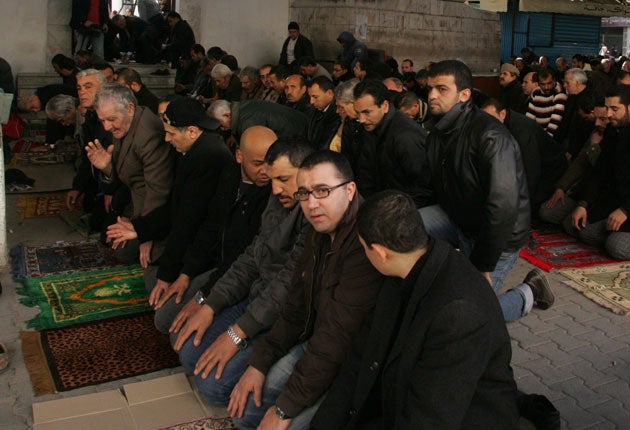Fears of Islamist revival as Tunisian PM falters

Your support helps us to tell the story
From reproductive rights to climate change to Big Tech, The Independent is on the ground when the story is developing. Whether it's investigating the financials of Elon Musk's pro-Trump PAC or producing our latest documentary, 'The A Word', which shines a light on the American women fighting for reproductive rights, we know how important it is to parse out the facts from the messaging.
At such a critical moment in US history, we need reporters on the ground. Your donation allows us to keep sending journalists to speak to both sides of the story.
The Independent is trusted by Americans across the entire political spectrum. And unlike many other quality news outlets, we choose not to lock Americans out of our reporting and analysis with paywalls. We believe quality journalism should be available to everyone, paid for by those who can afford it.
Your support makes all the difference.Even as Tunisians celebrate the fall of totalitarianism after 23 years, for many there is a shadow looming over their new-found freedom – the apprehension of rising religious fundamentalism and its effect on human rights.
Yesterday saw the first Friday prayers in Tunis since the fall of President Zine el-Abidine Ben Ali last week.
As worshippers left their prayers, outside some of the mosques were groups of men espousing conservative Islam, distributing leaflets warning against unbelievers.
With Prime Minister Mohamed Ghannouchi yesterday promising to quit politics after fresh elections, citizens are pleased at the prospect of a government with "clean hands" but are unsure whose hands they will be.
The Ben Ali regime presented itself as a bulwark against terrorism, making Muslim fundamentalists the target of its draconian laws. But now the religious parties say that they, too, should be allowed to play a part in the new political landscape that has emerged since the collapse last week of Mr Ben Ali's rule.
Ennahda, or "Awakening", an Islamist movement, was banned under Mr Ben Ali with its leader, Rachid Ghannouchi (unrelated to the current Prime Minister), exiled in London. Now, as its members take part in daily protests in the centre of Tunis, the party is seeking to be legalised.
Hamida Raidi, who was involved in a heated debate during a march after speaking out against political Islam, said: "We don't want to exchange one repressive government for another. We have seen what Islamist parties do when they start influencing politics. This will be bad for Tunisia and especially bad for women."
Hamid Jebali, a senior Ennahda official, blames a variety of people, from secularists with agendas in Tunisia to the Western media, for presenting a false image of Islamists. "It is the newspapers and television in Europe and America who are trying to frighten people by saying that 'the Islamists are rising'," he said. "But we are not the Taliban, or al-Qa'ida or Ahmadinejad. We shall submit to the vote of the people when the time comes."
Ennahda believes that political momentum is on its side. Rachid Ghannouchi said he will return to his homeland, after two decades, at the opportune moment while the movement's deputy leader, Ali Laraidh, has held talks with the Prime Minister over the possibility of being part of a government of national unity.
"To do that, we need to have our party legalised," said Mr Laraidh, who was imprisoned for 14 years under the old regime for "plotting against the state".
The belief that Islam should play a part in shaping the new political landscape has some unexpected adherents in Tunisian society. Sahar Ben Younis, 20, a student dressed in jeans and a T-shirt, said: "We are not saying that there should be things like burkas here. But Ben Ali put a lot of people who held the true values of Islam in prison and we need people like them in politics."
However, Samir al-Taibi, a member of the opposition PDP party and a trade union activist, urged caution: "Ennahda say they are not extremist, they say that they believe in democracy and tolerance. Well, let us seen their manifesto, let us see how they will react if someone criticises fundamentalist Islam. We would also like to see their positions on armed struggle and Islam. There are a lot of questions to be answered."
Those espousing armed struggle have urged Tunisians not to be "seduced by democracy". Al-Qa'ida in the Islamic Maghreb said this week: "This is the time to go to training camps and wage the decisive battle against the Jews, the Crusaders and their agents."
Join our commenting forum
Join thought-provoking conversations, follow other Independent readers and see their replies
Comments